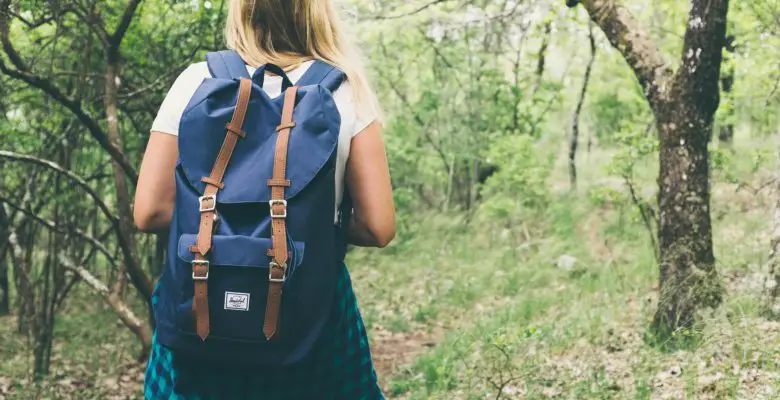
Hiking Tips
If you are keen on taking up hiking as a pastime then you will want to read our comprehensive checklist of hiking tips for beginners. We cover a wide range of topics from equipment and planning to the actual activity itself
Comprehensive Hiking Tips for Beginners Checklist
Hiking is an endlessly rewarding activity. It provides so many benefits, and is endlessly easy to fit into almost any lifestyle – but the big questions faced by anyone choosing to take that first, brave step into the great outdoors is… well, there’s frankly more than one big question. There are lots. What should I bring? Who should I bring? What should I wear? What shouldn’t I wear? Where should I go?
This is hardly an exhaustive list, but you get the picture. The great news is that hiking really is accessible to everyone and with a little bit of background research, you can be all set and on the trail in no time.
Which is probably why you’re here! We’ve put together a hefty list of all of the hiking tips for beginners that we can think of (or at least the important ones), to help you on your quest to become the ultimate hiker – or at least to make sure you don’t end up lost in a bog, with the unlikely hope of a Rough Collie coming to find you with Little Timmy in tow, your only chance of rescue.
We’ve broken down the following tips for first-time hikers into a few sections, for easy reference. The categories we’ve used are: Bringing the right equipment, effective planning and doing the actual hiking – while a few of these will overlap, and all are essential, there’s a lot to think about if you try and tackle everything in one. With this in mind, we’ll kick things off with equipment; Here are our 28 hiking tips for beginners:
Hiking Tips For Beginners – Equipment
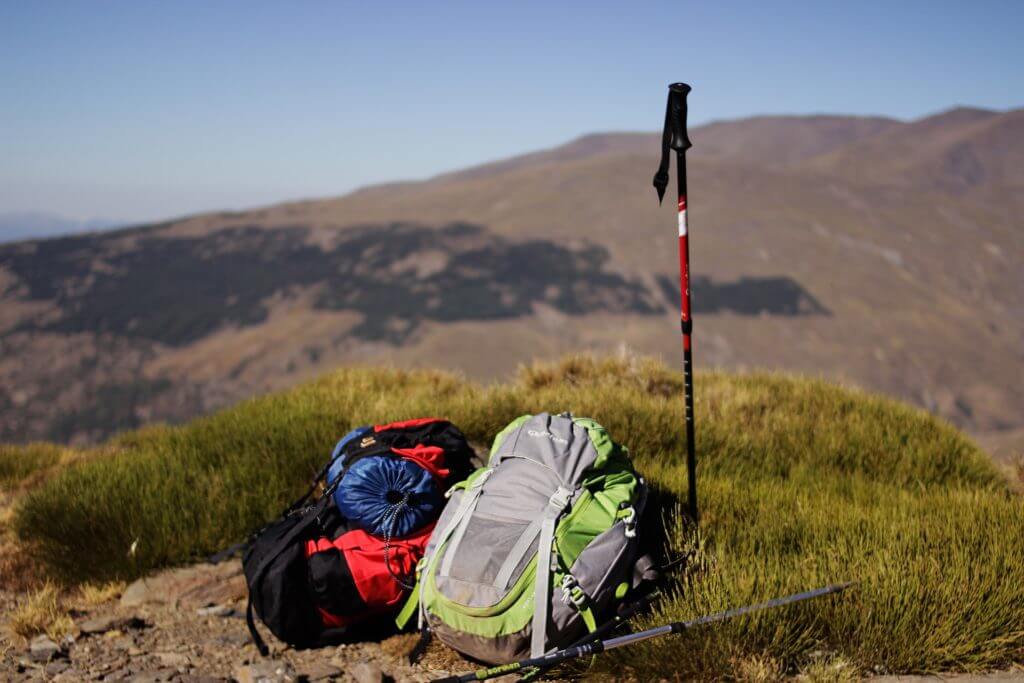
1. Good gear doesn’t always make for a good hike
One of the most exciting things about deciding to add hiking to your repertoire of hobbies is that moment when you open up your internet store of choice, or pop into your local outdoor equipment shop, with cash to burn and passion in your heart.
Unfortunately, this can lead to the temptation of spending a small fortune on everything the salesman, with cash signs in his eyes, offers you. It’s true that when it comes to equipment, particularly the essentials such as boots, bags, and tents, you do tend to get what you pay for – but what this doesn’t mean, is that by spending your life savings, you’re guaranteed a magical, unforgettable hike every time.
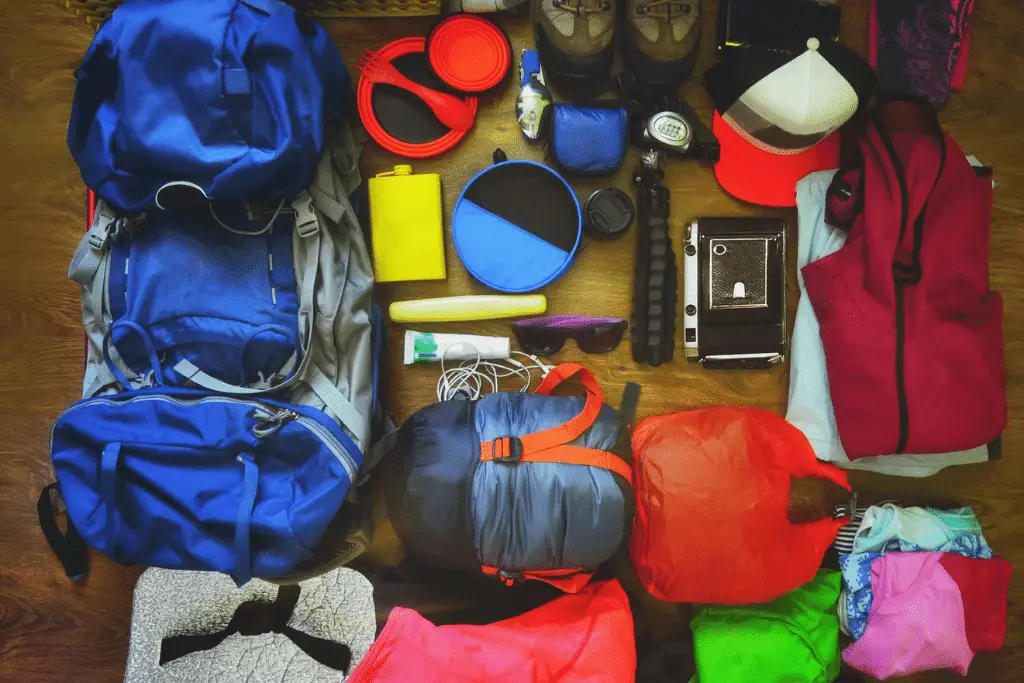
The key thing to understand is that yes, gear is important, but how much you enjoy hiking shouldn’t be about the stuff you buy and bring with you – it should be about the experience of being in the great outdoors itself, spending time either in your own company or with those you care about.
It may take you a little while to decide whether hiking is going to be a serious hobby for you. Until you have made your mind up, it makes sense to not go mad with your hiking gear purchases. This is definitely one of the hiking tips for beginners that you should definitely adhere to so as not to bleed your bank account dry!
2. Always carry PLENTY of water (one of the most important hiking tips for beginners!)
It might seem like the most obvious tip in the world, but it’s shocking how many stories emerge about hikers becoming dehydrated due to a lack of due diligence when it comes to carrying sufficient water.
Bring water with you. Plenty of it – a small plastic 300ml bottle from the supermarket isn’t going to cut it, particularly if halfway on your walk the sun makes an appearance and dries you up like a sponge.

You need to be carrying a solid amount of water – we need to drink at least 2 litres of water a day even when we’re sat around doing nothing, and during a hike, your need for hydration is much higher.
On a warm day, (or at high altitudes) studies suggest you should even aim to drink around about a litre an hour, which might seem like a lot – but is a valid target. Try to bring at least 2 litres of water with you on every hike. You might even have the possibility of refilling and purifying water from streams (more on that in planning) but don’t count on it.
There are various ways of bringing water with you, from water bladders that feed a tube to your shoulder for easy supping, to simple water bottles, so pick whatever you prefer. You should try to drink small amounts regularly, and sip continuously, rather than down a litre every 90 minutes (lest you be forced to enjoy the comforts of nature’s toilets). This is one of the most important hiking tips for beginners and should not be overlooked!
3. Always carry snacks
While you should bring a solid lunch (or appropriate meal) with you for the time of day you plan to hike, you should also bring a few snacks. Don’t go overboard on the unhealthy crisps or sweets, but the occasional pick-me-up treat can go a long way to boosting morale – particularly in younger or less-keen participants.
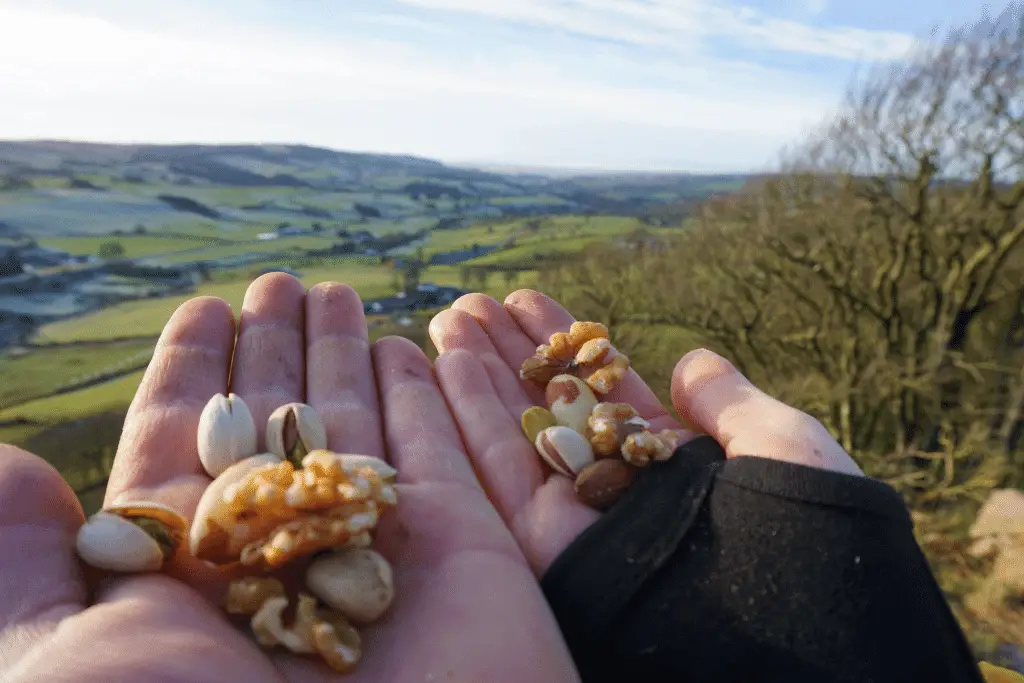
Snacks such as cereal bars, rice cakes, and other fibrous or slow-release carbohydrates are some of the best to munch down on as you go, as they’ll keep your energy topped up. If you do need that quick burst of sugar power, though, there’s always the timeless Kendal Mint Cake…
You can never underestimate the importance of having a good supply of sweet treats to keep those energy levels topped up. This is certainly one of the hiking tips for beginners that once read will never be forgotten!
4. Carry the right kind of phone
Again, seems obvious. Again, utterly vital. Even if you’re travelling in a group, every person on the hike should have a working, charged mobile phone with them. You might not have a signal out on the mountains, but you won’t need it to contact the emergency services (they have their own mobile reception satellites).
While it can be very tempting to bring your smartphone with you, this isn’t usually a good idea. Hiking bags can take a bit of a beating, and the rugged outdoors isn’t the best environment for a £1000 piece of fragile glass.
Similarly, smartphones run out of battery very quickly, and even with a charge pack might not last the hike (particularly if you allow them to become a distraction, and use them as you walk). A great tip is to buy a cheap, long-lasting, mobile, with a battery that can last for days. Whack in a pay as you go SIM, only use it for walks, and you’re all set.
5. Don’t just buy the most expensive gear
While a little contradictory to the earlier point about ‘getting what you pay for’, buying only the most expensive gear can often be a totally unnecessary financial pitfall.
Yes, it might seem nice to have super flashy high-end state-of-the-art-even-NASA-can’t-afford-it equipment, but the chances are that when it comes to getting started hiking you really won’t need it.
Do plenty of research and only buy the things you really need – and don’t feel pressured to splurge on the most expensive versions of everything, as these tend to be tailored for arctic mountaineers and jungle explorers, not casual hikers.
Take your time, and settle on something that simply does the trick. It’s one of the best hiking tips for beginners we can give.
6. Take good care of gear (cleaning etc)
Great, you’ve bought your gear, set out on your first hike, fallen headfirst into a march (laughed it off, because ha, we listened to the Roaming Spices and we know what we’re doing) and enjoyed a cup of hot chocolate around the fire when you return.
Only to find that next time you’re about to set out, mould has set into your backpack, your shoes are so mud-encrusted you can’t put them on, and your GPS has drowned.
It’s a small thing, but take good care of your gear after each and every hike. Dry off any wet equipment, clean any mud, make sure you check through everything electric and turn it off, and pop everything back into a safe place for next time. It’s a small hiking tip, but it can help your gear last so much longer.
7. Pack some emergency basics:
While in an ideal world, every hike would go perfectly smoothly, and the only thing you’d have to worry about is what you’re having for dinner to follow up, it’s crucial that you factor in the unpredictables.
Sometimes, things go wrong, and this is one hiking tip every beginner should think about. Here are a few emergency basics you should always carry with you:
- A loud whistle
- A powerful, reliable torch
- Emergency food
- A map of the area
- A compass
- A GPS
- Fire-making tools (waterproof matches, lighter, taper or candle etc.)
- Emergency shelter
- Suncream / hat / sunglasses
8. Be choosy with your footwear
Many hikers would agree that the most important piece of equipment you’ll ever use during your walking will be your boots. Be very choosy with your footwear – while a good pair of trainers might be ok for a short walk, or as you’re just getting started with some easy trails, you’re going to need a good pair of boots before long.
Try on plenty of pairs, do some research on brands and don’t settle for a pair that doesn’t feel right or comfortable. If there’s one bit of gear we’d encourage allocating a little more budget to, it’s this – there’s nothing worse than developing a blister halfway through a hike.
9. Bring light equipment
We don’t mean equipment that’s painted a charming shade of pastel teal, we mean bring equipment that isn’t heavy. This is a vital hiking tip for beginners – as when you’re getting started, and your body is adjusting to long walks with a full bag on your back, the weight you’re carrying has a big impact on your experience and enjoyment.
We’ve already mentioned that you should only bring with you what you need, but even within those guidelines, it’s a good idea to try and pick things that don’t weigh a ton.
Your overall pack weight can accumulate quickly, and considering the heaviest thing you’ll likely be carrying is water (which is also arguably the most important), bearing this tip in mind can make the whole experience more enjoyable.
10. Backpack – short trip is 10-20 litres, want 30 litres for long camping trips
As you’ve already gathered, as you get started hiking you’ll be accumulating rather a lot of stuff, and as you embark on longer or more challenging walks, you’ll need to bring a lot of things along for the ride – which means you’re going to need a backpack. Making the right choice for this vital bit of hiking gear is a crucial early step.

It might be tempting to simply use a pack you’ve got lying around the house or opt for something like a satchel fanny bag, but this is not a good idea. Bags that aren’t designed to offer comfort while bearing heavy loads or being used over long distances won’t suit, and could even cause damage to your shoulders or back.
The best choice is a simple, sturdy backpack, of an appropriate size for the amount you need to carry. If you’re only planning short hikes to begin with, then a pack with a capacity of 10-20 litres is plenty – any more and you’re just carrying unnecessary weight. You can upgrade to a 30-litre bag once you start embarking on longer trips, or if you decide to start camping too.
11. Food – aim to eat 200-300 calories per hour, but don’t just eat chocolate
Food is an important tool in the hiker’s arsenal, but also one that can tend to get left to the last minute, or not given a huge amount of thought. If you’re only planning to walk for a few hours, then admittedly the snacks you choose to bring along aren’t the be-all and end-all. But if you’re planning to move on to some long hikes, then this is something to consider more thoughtfully.
Regardless of how long you plan to walk for, you should aim to eat around 200-300 calories per hour (as you’ll be burning off more than usual and you’ll need to stay fuelled!), but don’t just rely on sugary sweets or processed snacks. Things like cereal bars and complex carbohydrates are a far better choice – and will give you the energy boost you’ll need!
Remember, food is key to your overall hiking health. Therefore, knowing what to eat before, during and after a hike will greatly help your performance on the trail!
12. Waterproof your things
Again, not a necessity, but as any passionate walker knows, the heavens have a tendency to open when you least expect or want them to. It’s not the end of the world if you get drizzled on your way home, but if a downpour occurs at the midpoint of your walk, and soaks you and your nice shiny new gear to the bone, it’s enough to put anyone off.
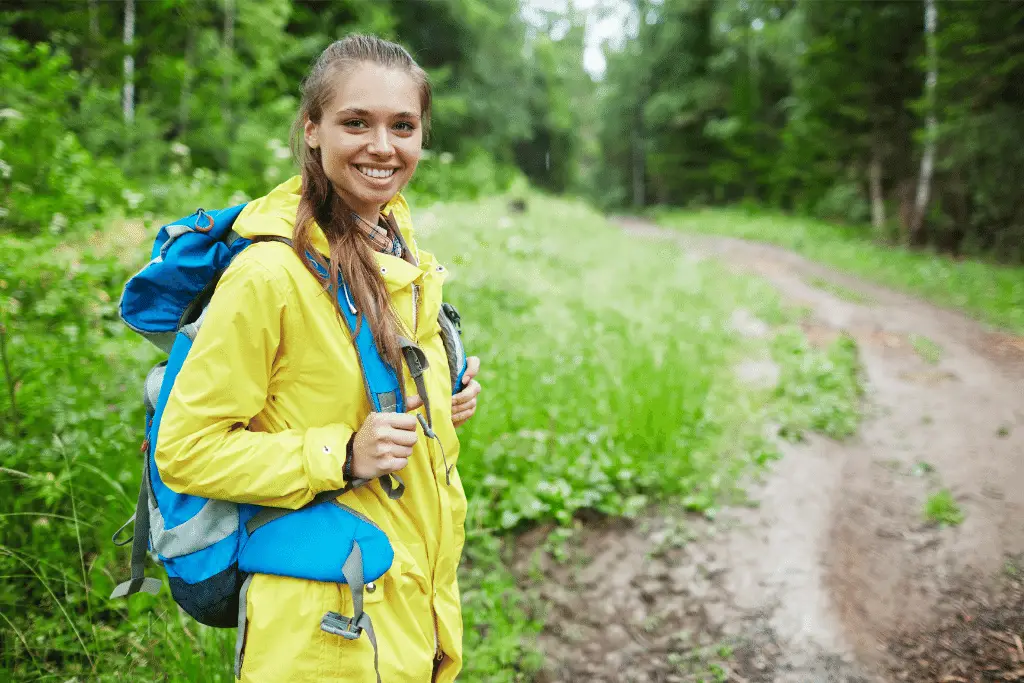
It’s not vital, but a potentially useful hiking tip for beginners is to waterproof your equipment. Boots can be soaked or painted with waterproofing solution, and you can purchase pull-over covers for your backpack too.
Waterproof gaiters are a useful tool for protecting the top of your boots (where rain can seep in), and carrying a pair of waterproof trousers and a waterproof coat with you in case the weather forecast is wrong is always important.
“Come and check out all the wonderful benefits of hiking that await you”
Hiking Tips For Beginners – Planning
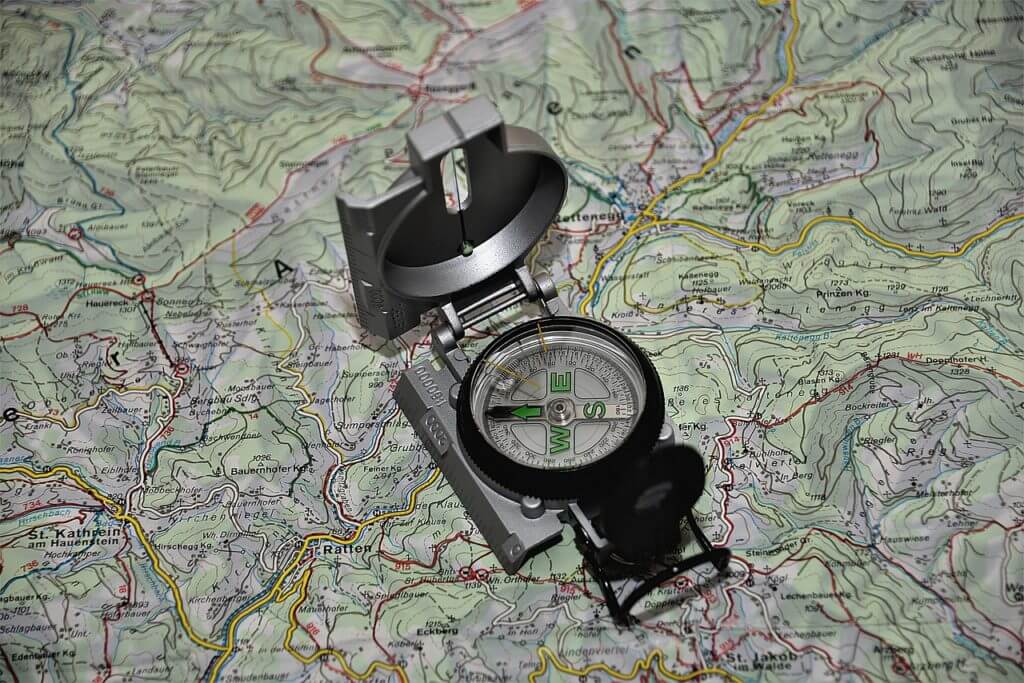
13. Pick a walk that suits your ability
Whatever kinds of walking you’re planning to do to start off, the most important thing when it comes to planning and preparation is to pick a walk that suits your ability. The main factors to consider are length, gradient, and things like accessibility (i.e are you going to be stuck in the middle of nowhere if things don’t go to plan early on).
Start slow, do a bit of research about suitable local walks, and focus on picking routes that you’ll enjoy rather than challenge you. The difficult stuff can come later!
With all of this said, if you’re a relatively fit and healthy individual already, and you’re simply new to walking, you might be ok with something a little more physically taxing. The main thing is not to push yourself too hard and to be realistic about your own capabilities when picking destinations.
14. Check the weather forecast
One of the most important elements of planning, and also one of the best hiking tips for beginners, is getting into the habit of relentlessly checking the weather forecast for the area you’ll be walking in, in the lead up to your hike.
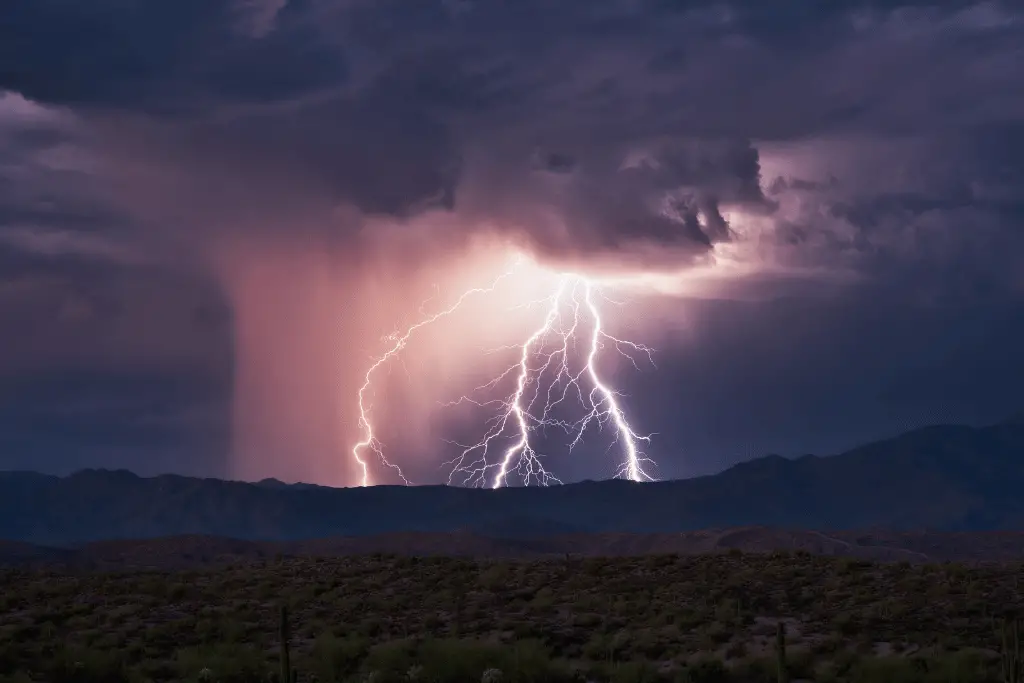
Forecasts are notorious for not getting things right all the time, and it’s vital you’re aware of any changes made to predictions.
It’s also worth noting that hiking is more physically demanding than simply going for stroll in the park, and sunshine can be as much of a problem – if not more so – than rain. Ideal conditions are calm, cloudy, and not too hot.
15. Read up on the local area
When you’re first getting started hiking, most of the trails you’ll be coming across will be new to you. Many local areas have several walks, trails, and paths you can follow, all of which fall under broadly similar topography and terrain. The best hikers don’t just do research on the specific route they’re taking, but the surrounding area and land too.
Make sure the information you read is up to date, and check the relevancy of the things you read online. Some key things to look for are any potentially harmful plants and wildlife (such as poison ivy), hazards such as marshes and bogs, and if there are any nearby roads or centres of civilisation.
16. Make a checklist of gear
Having purchased an armoury of outdoor equipment, it’s surprisingly easy to leave some of it behind. There are few things more frustrating than splurging out on a shiny new GPS or compass, only to realise you’ve left it at home. The same goes for clothing, and all sorts of other gear, and forgetting something important can even be dangerous.
One of the best things you can do early on into your hiking ‘career’ is to make an extensive checklist of every piece of gear you own and print off a new copy every time you prepare for a walk.
While you won’t need every item for every walk, as you prepare, ticking off the things that you do need (as you pack them) is a brilliant way to make sure nothing important gets left behind.
17. Plan routes carefully
When you’re planning your first few hiking routes, you need to be particularly careful. It’s very easy to forget to factor in things such as contour lines on a map or to misjudge the landscape more broadly, leaving you halfway through a walk facing the walking equivalent of Mount Olympus, or knee-deep in a bog.
When you’re getting started, the best option is to pick routes that others have already planned. Purchase a book of walks for your local area (or somewhere you can get to fairly easily), or find a few online.
When you do start picking your own walks, think about things like whether your route loops, or if you’ll need to double back (and when), as well as things like proximity to parking, and accessibility for emergency services (in the unlikely event you require aid)
18. Have a backup plan
We really can’t stress this one enough. When you’re preparing for and planning a hike, you need to have a backup plan in case things go wrong. In a worst-case scenario, this will be calling in an emergency helicopter or rescue, but this should be a last resort. You should always have a plan in the back of your mind for what to do if the proverbial doo-doo hits the fan.
One of the best and most simple things you can do is to kindly ask someone if they wouldn’t mind being your dedicated rescue team. In the event that you run out of water and become dehydrated, get lost, or generally need someone to step in and help out, having someone on the other end of a phone who can swoop in to save the day is always a good idea.
Which leads us nicely to:
19. Let someone know where you’re going
A small point, but one that could potentially save your life. When you’re first getting started with hiking, if you’re planning to go it alone (which we don’t recommend initially – it’s more dangerous, and less fun!), ALWAYS tell someone close to you where you’re going, and when.
In the unlikely event that you were to be knocked unconscious, or become seriously ill and not be in a position to call for assistance yourself, you need to make sure that as soon as the alarm bells start ringing, there’s someone to hear you. If you’ve seen or read 127 Hours, you’ll know how much of a difference this can make!
20. Join hiking forums/local groups
Hiking is a wonderfully social activity, and one of the best things you can do as a beginner is to get involved with some groups or societies who enjoy the hobby together.
There are all kinds of groups online, from forums and chat rooms to social media groups – and all of them can be a fantastic source of information and a good way to meet people in the know.
Similarly, if you’d rather avoid the digital sphere (one of the great fundamental joys of hiking, funnily enough), then you can see if there’s a local hill walking group, hiking society, or similar, that you could join.
You don’t need to become overtly dedicated to a society, but hiking is best enjoyed with others – and particularly when you’re getting started, it’s a great way to enhance the experience.
21. Charge electrical gear
Another easily forgotten misstep is to forget to charge your electrical gear overnight. While most of us are already dedicated members of the church of daily smartphone charging, if you choose to take our advice in hiking tip 4, and purchase a spare phone for walks, the extra battery length can sometimes create a false sense of charge security.

The night before a hike, make sure to stick your GPS, phone, and any other electrical devices on charge. You can always bring an on-the-go charger, but that means extra weight, and a full charge should last a hike for most bits of gear.
As an added tip, stick some new batteries in a torch every couple of walks, as even if these aren’t used regularly, they can bleed power over time!
22. Plan around car parking
While some of us are lucky enough to live in close proximity to the wilderness, many of us are forced to stick our boots and packs in a car in order to experience the magic of the great outdoors. If you’re going to need to drive to the place in which you plan to hike, then you’ll need to plan your route around car parking.
While most hiking paths point out nearby car parks, you’ll need to factor in how easily you’ll be able to get to where you’re actually planning to go, and how you’ll get back to your car afterwards. Imagine driving up to your planned hike spot, only to realise the start of your walk is a verified hike away from the car park in the first place.
Hiking Tips For Beginners – The Hike Itself
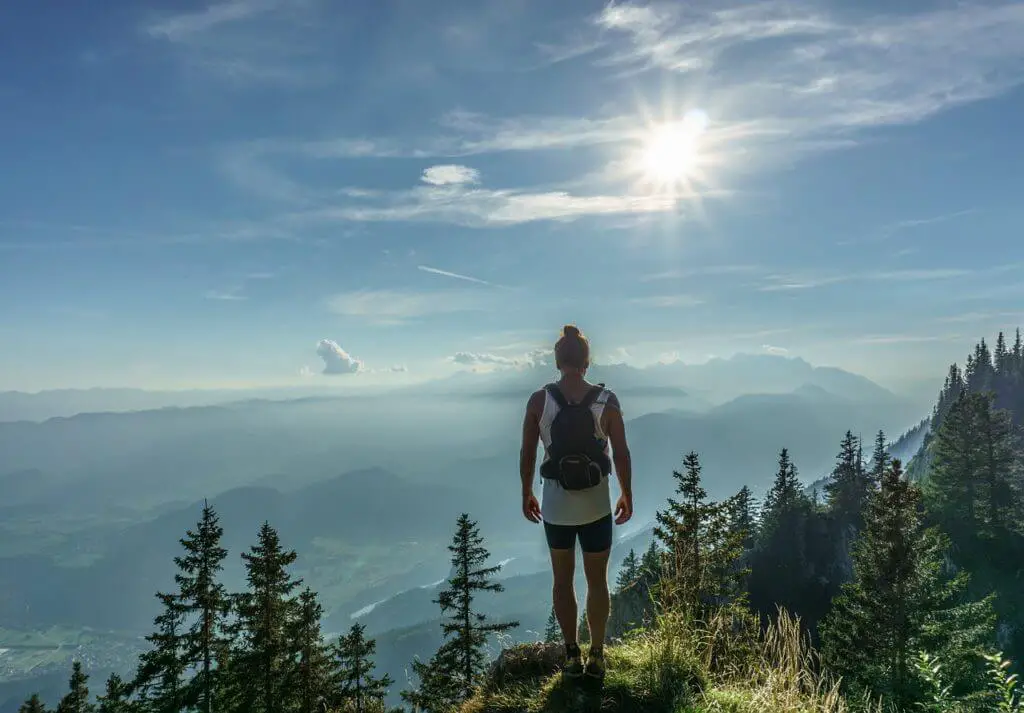
23. Have a healthy breakfast the morning before a hike
It’s the most important meal of the day – and this is even more poignant on a day you plan to physically exert yourself more than usual!
Hiking is a fairly strenuous task, that requires sustained energy over a long period of time, and on the day of a walk, it’s absolutely vital that you eat a hearty, balanced breakfast to keep you going.

It may be delicious, but this isn’t the time for a cheeky bacon sarnie. Load up on complex carbohydrates, as well as vitamins and minerals. Yoghurt with fresh fruit, healthy cereals, and wholemeal toast is a good combination – washed down with a glass of fresh fruit juice, you’ll be good to go.
24. Leave things as you find them
Something that sadly many walkers either aren’t aware of or choose to disregard altogether, is the simple principle of leaving things in the wild well alone.
Whether it’s flora or fauna, there’s only one rule to follow – leave everything as you find it. That doesn’t mean pick things up, have a rummage, and then replace things, either, it simply means let the natural world be as you walk.
The great appeal of hiking is the opportunity to experience the beauty of nature, and do your best not to leave any marks. Stick to the path that’s already been beaten out by other walkers, and if you open any gates, shut them behind you! (Lest you face the wrath of an angry bull, or possibly worse, farmer).
25. Pace yourself
It’s quite easy, once you set out on your first few hikes, to settle into a flow that’s a little too fast. If your hike is going to last many hours, it can be surprising how much of a difference a slight change in pace can make early on. Kick things off too fast and you’ll regret it in a few hours time, particularly when that next hill looms into view.
Right from the moment you embark on a walk, try to keep things steady and slow. The best speed is probably the one that feels about 20% slower than you feel like you should be walking, but hiking is a long-distance exercise, and setting a steady pace is important.
You’ll be able to up this as you get fitter, and more used to walking for long periods, but as a beginner, it’s good to keep things gentler.
26. Breathe normally
This might sound like a given, and most of us don’t really think about our breathing, even when we’re doing exercise, but as soon as we start paying attention to our breathing we realise how erratic it can be.
If you’re on a hike, particularly one at higher altitudes, it’s really important to check in every once in a while with your breathing, and make sure you aren’t gulping down too much air at once (hyperventilating), or taking breaths that are too shallow.
27. Give uphill walkers the right of way
A small point, but one that nonetheless matters – particularly if you’re on the receiving end of someone handling things poorly. The hiking community is, broadly speaking, one of kinsmanship, camaraderie, and friendliness – and one of the unwritten (and sometimes even written) rules of the hobby is ‘give uphill walkers the right of way’.
While many walkers acknowledge that walking downhill can sometimes seem trickier, and is definitely harsher on the shins, than uphill trekking, when you’re the one facing a steep upwards incline, that all seems somewhat irrelevant.
If you’re coming down a hill, and there are other walkers coming up, let them pass, and duck out of the way. It’s common courtesy, and you’ll be grateful the next time someone does it for you – it helps you keep pace and flow in a tricky uphill section.
28. Have fun!
This one is self-explanatory, but it’s also, without doubt, the single most important hiking tip for beginners. Hiking is a joyous, endlessly beneficial activity, and if you’re reading this, it’s because you want to get the most out of it you possibly can. Enjoy it. Have fun.
Tell your friends about your experiences, and relish every moment. It’s a wonderful activity, and we wish you all the best of luck with it!
Hiking Tips For Beginners – Summary
Hiking is an incredibly fun and healthy pastime for both mind and body. Getting started the right way will only help enhance your overall experience. So, make sure you take on board these hiking tips for beginners and you will be taking your first steps into what will almost certainly become a new lifelong hobby.
Like Our Article? Please Pin it!
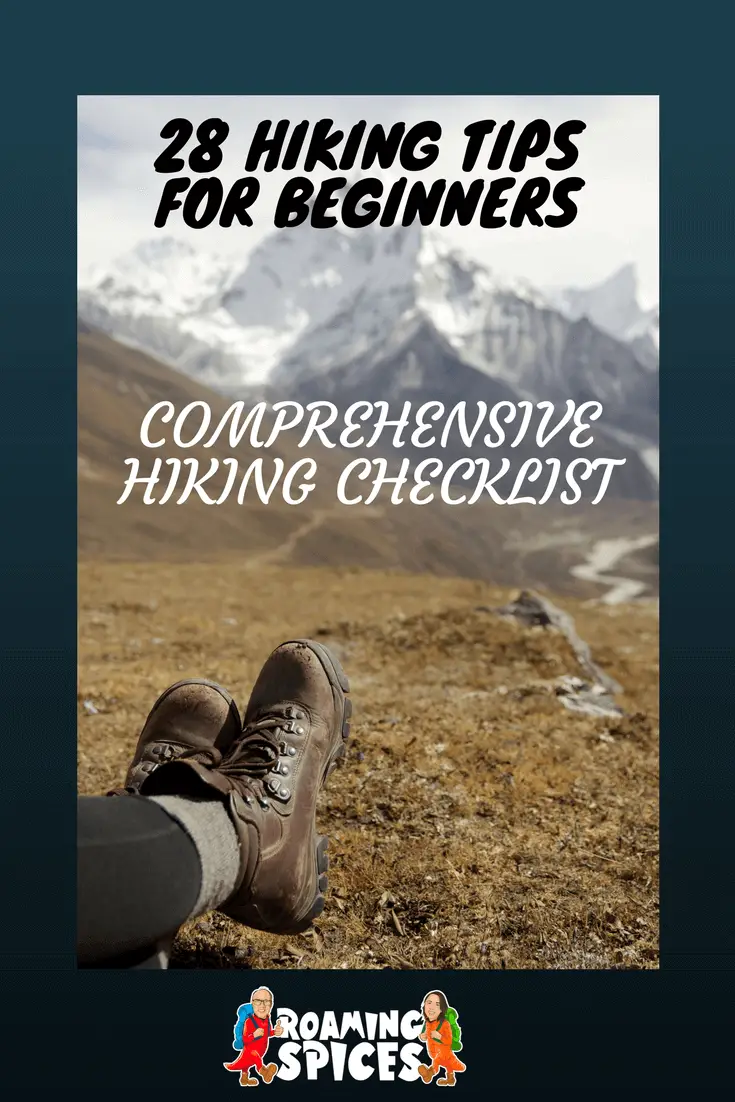

Just gone through your 28 hiking tips for beginners. Very good !
Hi Margaret
We are glad that you found our hiking tips for beginners useful. Stay tuned as we continue to add all sorts of hiking related tips and advice that you will hopefully also find useful. If you have any questions please feel free to ask!
Happy hiking!
Gavin